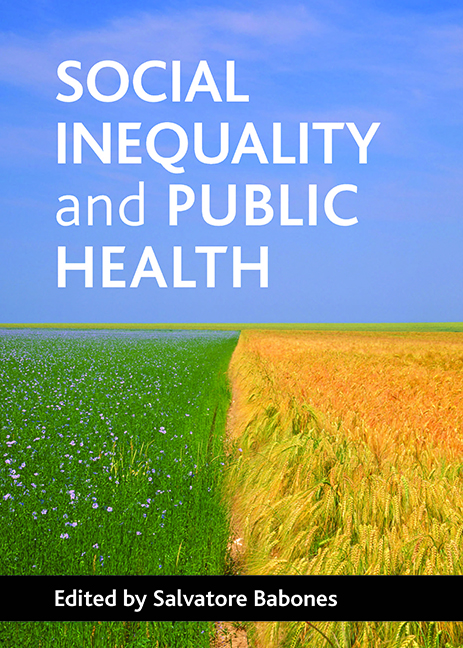Book contents
- Frontmatter
- Contents
- List of figures, tables, maps and boxes
- Preface
- Notes on contributors
- one Introduction
- Pathway 1 Differences in individual health behaviours
- Pathway 2 Group advantage and disadvantage
- Pathway 3 Psychosocial factors in individual health
- Pathway 4 Healthy and unhealthy societies
- Conclusions Public understanding of the new public health
- Index
twelve - ‘Public goods’, metropolitan inequality and population health in comparative perspective: policy and theory
Published online by Cambridge University Press: 22 January 2022
- Frontmatter
- Contents
- List of figures, tables, maps and boxes
- Preface
- Notes on contributors
- one Introduction
- Pathway 1 Differences in individual health behaviours
- Pathway 2 Group advantage and disadvantage
- Pathway 3 Psychosocial factors in individual health
- Pathway 4 Healthy and unhealthy societies
- Conclusions Public understanding of the new public health
- Index
Summary
Introduction
There is no such thing as society: there are individual men and women, and there are families. (Margaret Thatcher, 1987, www.margaretthatcher. org/speeches/displaydocument.asp?docid=106689)
Margaret Thatcher's infamous words suggest a declining capacity to conceptualise and articulate notions of the public good in affluent societies. Such a lack of collective imagery is at odds with recent research investigating the relationship between societal income distribution and population health in industrialised countries. This research suggests that societies (national and subnational jurisdictions) with more egalitarian income distributions have better average health status. It is already well established that for individuals in industrialised countries, greater social status (however measured, that is, income, education and so on) is associated with better health status (almost irrespective of health status measure), but at the aggregate level, relative income (income inequality) appears to be more strongly associated with health status than measures of absolute income like median income (for example, Kaplan et al, 1996; Wilkinson, 1996; Lynch et al, 1998). The individual ‘social gradient in health’ has been virtually ubiquitous across the industrialised countries for most of the last century. In short, for individuals, it is clear that wealthier is typically healthier, while at the population level, it appears that societies with a more egalitarian distribution of income are healthier than those with a more unequal distribution of income.
But the evidence on this relationship is not universal and its meaning for policy is highly contested. Lynch et al (2004) and Wilkinson and Pickett (2006) conducted reviews of the same literature and arrived at very different conclusions about the consistency and the importance of the evidence on this relationship. Both would agree that the implications of the evidence are not self-evident, although they arrived at different conclusions about what those implications are.
We argue that there are three heretofore unacknowledged factors that inhibit any resolution of the debate about the importance of income inequality and health:
• the body of evidence consists of a series of studies that are not directly comparable;
• even if it were directly comparable, it would demonstrate considerable ambiguity in its implications, because the relationship is not universal;
• even if we had perfect information, there are deeply entrenched views about the appropriate policy remedies that would not only be effective but have tolerable side effects.
- Type
- Chapter
- Information
- Social Inequality and Public Health , pp. 169 - 184Publisher: Bristol University PressPrint publication year: 2009



